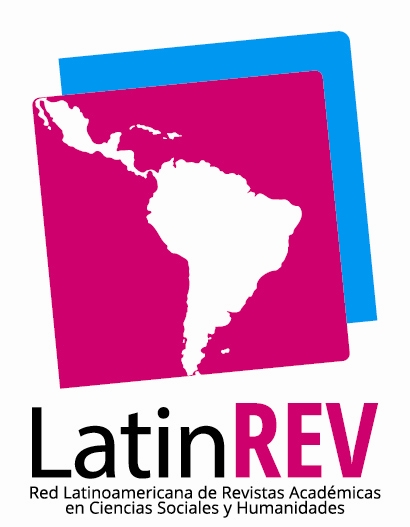“Let’s eat!” Commensalism practices of boys and girls in a Sala Cuna (Córdoba, Argentina)
Keywords:
commensalism, boys, girls, meals, food programAbstract
The Sala Cuna Plan is a childcare policy of the Government of the Province of Córdoba aimed at children between 45 days and 3 years old. In this work, we will focus on identifying and understanding the ways in which the attending children are addressed by the different adult actors who intervene at lunchtime: the cook, nutritionists, and teachers. To do this, we carried out an ethnographic approach. The intentional sample consisted of 30 boys and girls under 4 years old attending the afternoon shift. The techniques and instruments that we used were participant observations in the neighborhood and in the room, ethnographic interviews with the cook, the teacher, caregivers, mothers, and nutritionists. We were able to observe that in the modeling of the commensalism practices of boys and girls, adults intervene - who follow their own habitus in tension with the programmatic guidelines – as well as the peer group. The teachers are very much on top of children so that they finish eating the whole plate. They justify this action knowing the material living conditions of their families conditioned by poverty. This social fabric is conditioning the learning of ways of connecting with time, space, food, and others, and, also the ways of experiencing and inhabiting one's own body when children eat.
Downloads
References
Alonso, Daniela (2012). “El juego, todos los juegos. Entre la norma y la práctica. Sentidos del juego en el jardín de infantes”, en Revista Lúdicamente, N°1, Año 1, 1-12.
Martín Barbero, Jesús (2002). “Jóvenes: comunicación e identidad. Pensar Iberoamérica”, en Revista de Cultura, Nº 0. Recuperado de: En http://www.oei.es/pensariberoamerica/ric00a03.htm. (11/04/2014).
Carli, Sandra (2010). “Notas para pensar la infancia en la argentina (1983-2001): Figuras de la historia reciente”, en Educación en Revista, Vol. 26, Facultad de Ciencias Sociales, Universidad de Buenos Aires, 351-382.
Carli, Sandra (1999). De la infancia a la escuela. Buenos Aires: Ed. Santillana.
Contreras Hernández Jesús (1992). “Alimentación y cultura: reflexiones desde la antropología”, en Revista chilena de antropología, Nº 11, 95-111.
Contreras Hernández, Jesús y Gracia Arnaiz, Mabel (2005). Alimentación y cultura. Perspectivas antropológicas. Barcelona: Ariel.
Duque Páramo, María C. (2008). “Niñas y niños colombianos en los estados Unidos. Agencia, identidades y cambios culturales alrededor de la comida”, en Revista Colombiana de Antropología, Vol. 44 (2), 281-308.
Erikson, Erick (2000). El ciclo vital completado. Barcelona: Paidós.
Fischler, Claude (1995). El (h) omnívoro. El gusto, la cocina y el cuerpo. Barcelona: Anagrama.
Fischler, Claude (1980). “Food Habits, Social Change, and the Nature/Culture Dilemma”, en Social Science Information 19 (6): 937-953.
Gracia Arnaiz, Mabel y Comelles, Josep M. (eds.) (2007). No comerás. Narrativas sobre comida, cuerpo y género en el nuevo milenio. Barcelona: Icaria.
Guidalli, Bárbara (2012). “¿Puede ser el comedor escolar un espacio de aprendizaje alimentario? Factores y circunstancias que influyen en la experiencia del comer en la escuela”, en Piaggio y Solans (Comps), Enfoques socioculturales de la alimentación (308-325). Buenos Aires: Akadia.
Hernández Sampieri, Roberto; Fernández Collado, Carlos y Baptista Lucio, Pilar (2006). Metodología de la investigación (3a. ed.). México: McGraw-Hill/Interamericana. México.
Ibáñez, Ileana y Huergo Juliana (2017). Sentidos y Sabores del Gusto como Experiencia Social: niños y niñas en centros de cuidado infantil. Buenos Aires: Teseo.
Ibáñez, Ileana y Huergo Juliana (2012). “Encima que les dan eligen. Políticas alimentarias, cuerpos y emociones de niños/as de sectores populares”, en RELACES, Vol. Nº 8 (4), 29-42.
Le Breton, David (2006). El sabor del mundo. Una antropología de los sentidos. Buenos Aires: Nueva Visión.
Milstein, Diana (2015). “La etnografía con niños y niñas: oportunidades educativas para investigadores”, en Espacios en blanco, Revista de Educación, Vol. 25, Nº 1, 193-211.
Milstein, Diana (2008). “Conversaciones y percepciones de niños y niñas en las narrativas antropológicas”, en Sociedades y Cultura, Vol.11. Nº 1, 33-40.
Mintz, Sidney. W. (1996). Dulzura y poder: el lugar del azúcar en la historia moderna. México: Siglo XXI.
Ochs, Elinor y Shohet, Merav (2006). “La estructuración cultural de la socialización durante las comidas”, en Piaggio y Solans (Comps), Enfoques socioculturales de la alimentación (259-276). Buenos Aires: Akadia.
Piaggio, Laura. R y Solans, Andrea. M. (2014). Enfoques socioculturales de la alimentación. Lecturas para el equipo de salud. Buenos Aires: Akadia.
Sedó Masís, Patricia y De Mezerville, Gastón (2003). “Los significados del alimento: caso del adulto mayor. Gerotrascendencia y alimentación: Propuesta de un modelo teórico denominado Gero-alimento-terapia basado en las etapas de desarrollo psicosocial”, en Revista Ensayos Pedagógicos, 3 (1), 49-74.
Seoane, Luis y Petit, J. Enrique (1995). Factores que determinan el comportamiento alimentario de la población escolar de la Comunidad de Madrid. Madrid: Documentos Técnicos de Salud Pública. Dirección General de Prevención y Promoción de la Salud. Consejería de Sanidad y Servicios Sociales.
Downloads
Published
Issue
Section
ARK
License
Copyright (c) 2021 Candela Luciana González, Candela María Iriarte

This work is licensed under a Creative Commons Attribution 4.0 International License.






